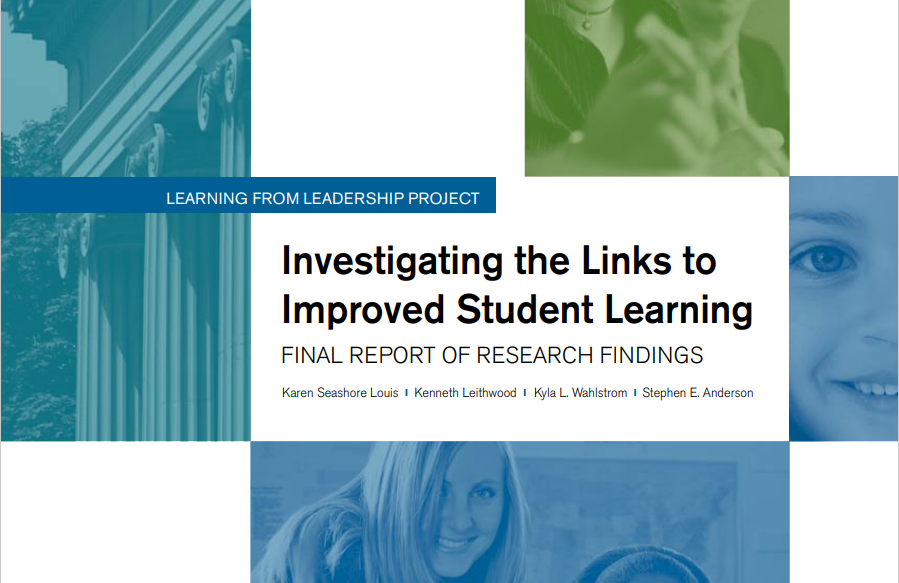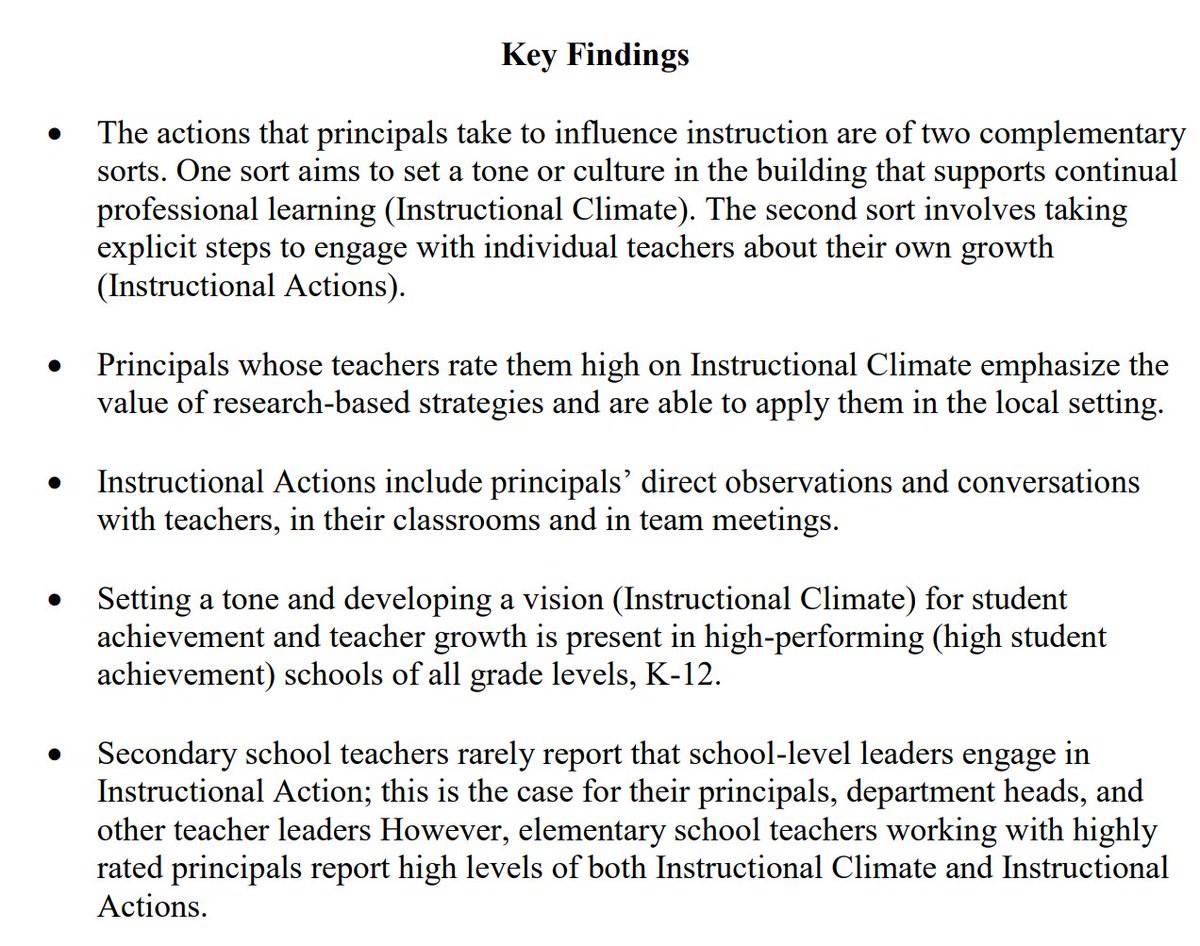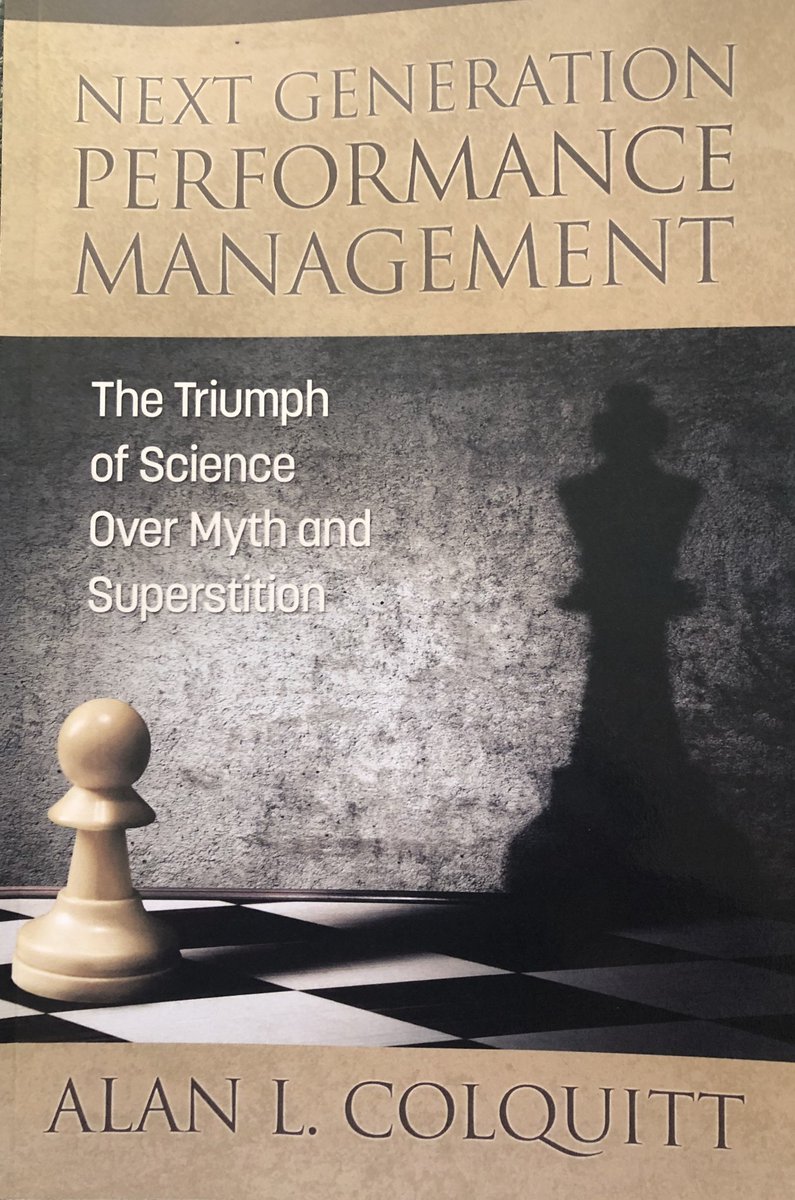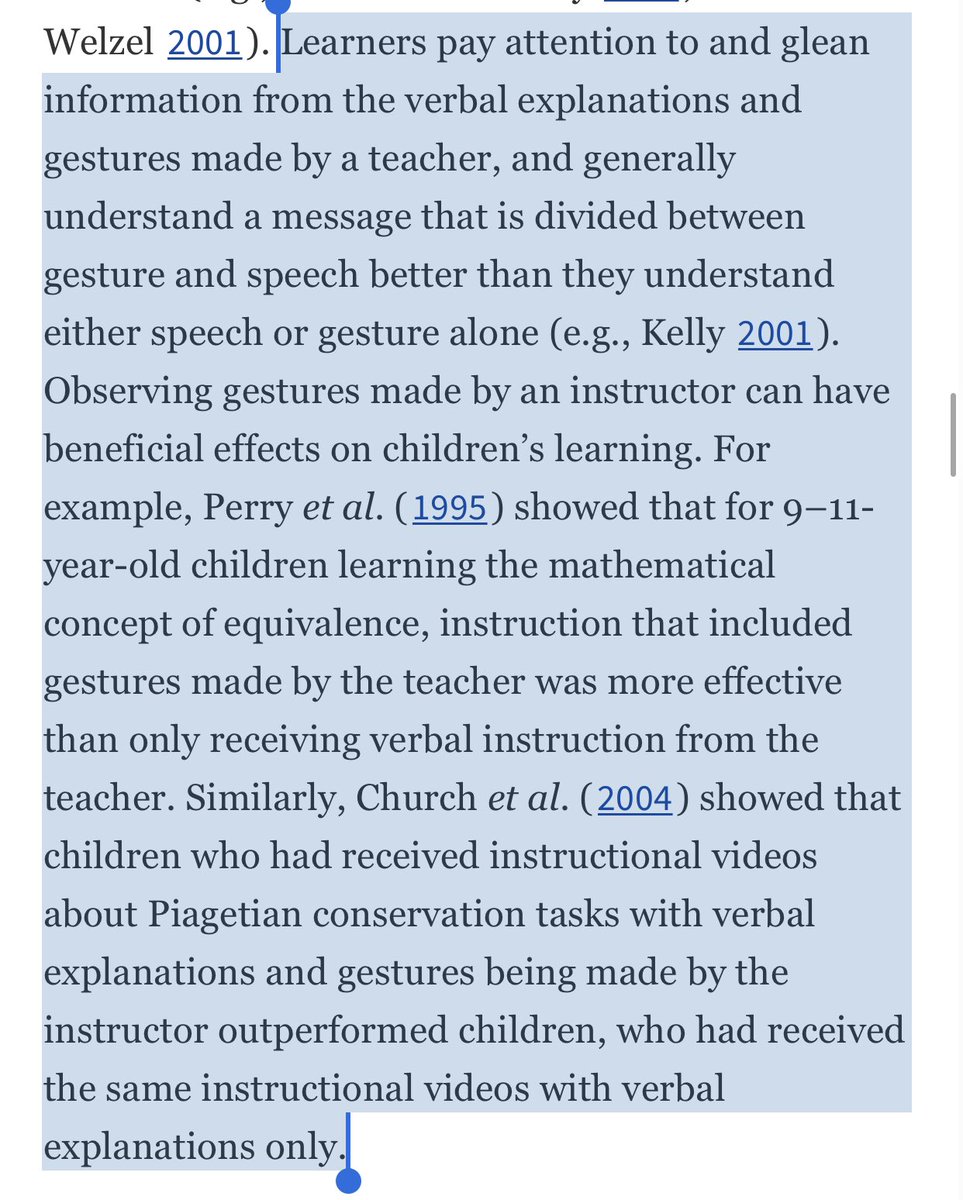
Thanks to @ryandal for putting me onto this brilliant paper by @GerardSeijts et al. This absolutely nails why teacher performance goals aren't helpful if teachers don't *already* have all the skills/resources to achieve the performance. citeseerx.ist.psu.edu/viewdoc/downlo… 



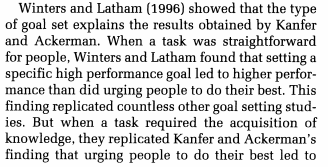
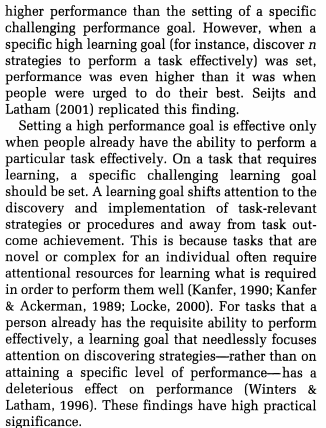
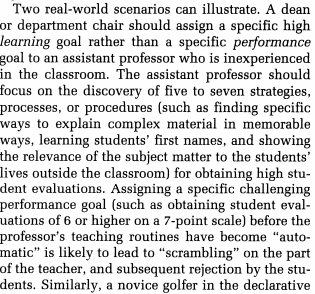
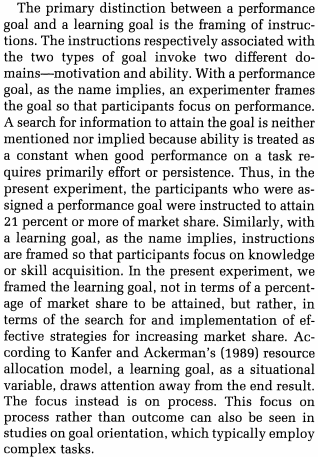
A performance goal such as 'achieve these class results' is only helpful for a teacher if they already have all the perceptive understanding of students' challenges, the skill and resources to meet them. It encourages them to prioritise attention/time/effort to this goal.
But if 'doing more of the same' or redoubling of existing efforts won't cut it, then use of a performance goal instead of a learning goal is likely to hinder the achievement of better results - it makes teachers less likely to focus on problem-solving & learning.
Importantly, the learning goals stimulate increased self-efficacy which correlates with greater likelihood of 'information search' 
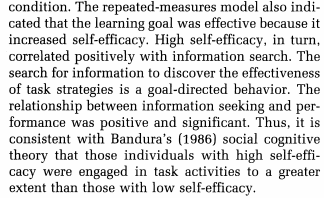
This paper correlates nicely with the @CIPD @CenterforEBMgt review of performance management cipd.co.uk/knowledge/fund…
There's some more nuanced findings from another paper (again HT @ryandal) by Masuda (@EADABusiness) et al where they find that a combination of learning *and* performance goals can also be effective. researchgate.net/publication/28… 
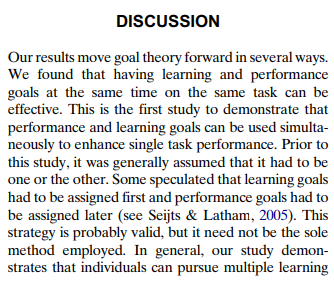
Interestingly, Masuda et al also found that, initially, increasing task challenge was positively associated with performance, but this plateaued and then ultimately fell off. They hypothesise a link with working memory limits. 
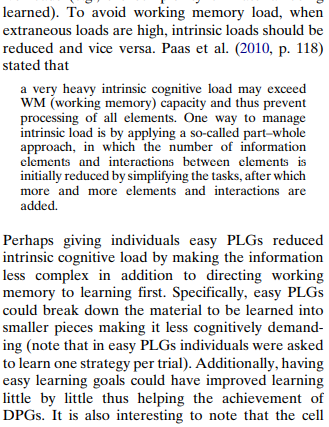
What would this mean for school performance management? Firstly, recognising that performance goals alone may only be suitable when sufficient understanding, skill, perceptive expertise, self-efficacy, resources are all in place.
Secondly, it's important to consider separately proximal v distal goals - e.g. 'how my class does in this current topic' v 'how my class does at the end of GCSE' and how different combinations may be better for novices v experienced teachers.
Once again these papers fundamentally reinforce the idea that your performance management system *must* have a strong link to ongoing professional learning if you don't want to actively reduce teachers' performance.
• • •
Missing some Tweet in this thread? You can try to
force a refresh




